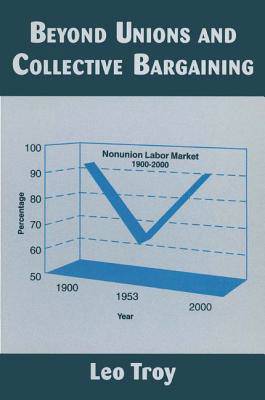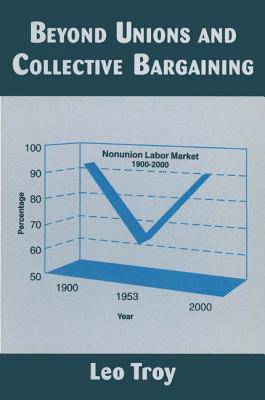
- Afhalen na 1 uur in een winkel met voorraad
- Gratis thuislevering in België vanaf € 30
- Ruim aanbod met 7 miljoen producten
- Afhalen na 1 uur in een winkel met voorraad
- Gratis thuislevering in België vanaf € 30
- Ruim aanbod met 7 miljoen producten
Zoeken
Omschrijving
The first book to provide a comprehensive examination of nonunion industrial relations -- its definition and parameters, and the causes and factors that led to the nonunion reality. Beyond Unions and Collective Bargaining focuses on labor relations in the private -- sector labor market, which accounted for about 90% of the sector at the end of 1999. Troy discusses with clarity and authority the transformation in the United States from the organized to the private labor market. Within a two-part format, Troy first deals with the manifold historical conditions that set the stage for the competitive nonunion alternative and then addresses the all-important question, "What makes the nonunion system work?"
Specificaties
Betrokkenen
- Auteur(s):
- Uitgeverij:
Inhoud
- Aantal bladzijden:
- 256
- Taal:
- Engels
- Reeks:
Eigenschappen
- Productcode (EAN):
- 9780765604699
- Verschijningsdatum:
- 30/09/1999
- Uitvoering:
- Hardcover
- Formaat:
- Genaaid
- Afmetingen:
- 160 mm x 236 mm
- Gewicht:
- 476 g

Alleen bij Standaard Boekhandel
+ 351 punten op je klantenkaart van Standaard Boekhandel
Beoordelingen
We publiceren alleen reviews die voldoen aan de voorwaarden voor reviews. Bekijk onze voorwaarden voor reviews.











